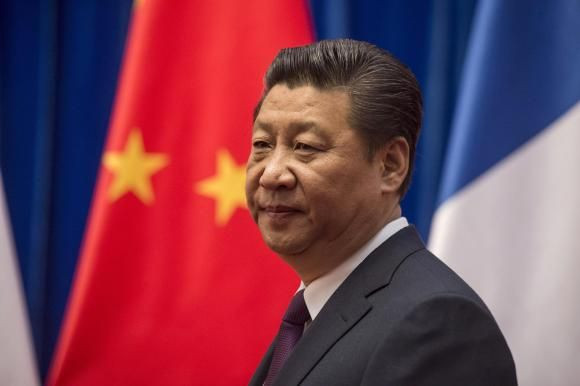China Unveils Xi Jinping's 'Four Comprehensives' Governance Plan; What It Means For China's Future

China’s state media rolled out with great fanfare on Wednesday the “four comprehensives,” the main points of President Xi Jinping’s approach to governance, which will likely be his legacy to the Communist Party. At its core the plan is nothing new: it hinges on "a moderately prosperous society, reform, rule of law, Party discipline," all longtime buzzwords in Chinese political discourse. But the four-pronged approach solidifies Xi's priorities for the future, two years after taking the helm.
Historically, China has been guided by plans for progress that are given often ambiguous names. Unveiling a catchy, packaged leadership philosophy is a rite of passage for Chinese top leaders, following in the footsteps of Zhou Enlai’s “Four Modernizations,” or Jiang Zemin’s “Three Represents." The tradition includes the eventually unsuccessful “Great Leap Forward” in Mao Zedong's era and Hu Jintao’s “Scientific Outlook on Development”; the “four comprehensives” are Xi Jinping’s own brand of leadership, now officially on display.
The official communication of Xi’s plans at this point does not appear to be an accident, coming ahead of the upcoming “Two Sessions” annual meeting in Beijing in March where the National People's Congress, an advisory body, and the Committee of the People's Political Consultative Conference will discuss national policies.
The Communist Party’s newspaper, the People’s Daily, published a long editorial on its front page detailing Xi’s “strategic layout." Xi’s philosophies aim to “comprehensively build a moderately prosperous society, comprehensively deepen reform, comprehensively govern the nation according to law and comprehensively be strict in governing the party.”
But what do the concepts actually mean, and what real change will they bring in China?
Building a moderately prosperous society
The phrase “moderately prosperous society” was a term first coined by Deng Xiaoping in 1979, and has been since the long-term vision for modern China. The People’s Daily reports that Xi has also adopted the mantra and positioned it as the central goal of his own legacy, with the other three “comprehensives” supporting this maxim.
Striving for a so-called moderately prosperous society is actually the direct definition of the “Chinese Dream,” a loose ideal that Xi Jinping introduced in 2013 and depicts the nation as an economic, political and military power, where citizens are able to achieve certain degrees of success. According to a report by the Diplomat, this means a version of China minus its current problems: extensive corruption, rampant pollution, ethnic tensions, social unrest, territorial disputes, and the threat of a hard economic landing after years of GDP growth in double digits.
This leads to three key areas that need the Party’s focus:
Deepen reform
For Xi, this means forging on with both economic and political policies that have already been put in place. Since taking the helm in 2012, Xi took on the task of overhauling the Communist Party by weeding out corrupt officials. Top officials like Zhou Yongkang, a retired member of the Politburo Standing Committee, and lower-rank figures have fallen victim to Xi’s anti-corruption drive, which targets government leaders and employees accused of receiving bribes and other forms of ill-gotten wealth.
Xi also taking a heavier hand in controlling China’s economy, introducing expectations of a “new normal” for GDP growth, which fell to 7.4 percent in 2014, compared to 14.2 percent in 2007, and aims to forgo impressive, breakneck development in exchange for slower but sustainable growth that will also pose less of a threat to the environment. This means spending more time and resources developing service-focused businesses as opposed to relying on factory exports and other industrial sectors to drive the economy.
Govern the nation according to law
Xi drives home the importance of the newest addition to his policies thus far, governing in “strict accordance to the Rule of Law.” The People’s Daily writes that Xi’s calls for adherence to the rule of law are a necessary modernization step that will tighten up the country’s legal system. According to a previous report by the International Business Times, this means divesting total, overarching disciplinary power from the central government, and allowing local courts to be supervised by local officials, establishing semi-independent courts to promote judicial independence and reduce interference by local party officials.
Be strict in governing the Party
This is closely related to Xi’s deepened political reforms. Most of his platform thus far stands on his assumption that internal corruption and previous tendencies to interfere with economic reforms is the biggest threat to the Party. According to Michael Schuman, a Beijing-based author and journalist, allowing reforms to take effect means restraint when it comes to Party interference.
“In order to have properly functioning banks, for instance, the government has to stay clear of lending decisions. For the private sector to flourish, state companies must be forced to compete fairly, and their management allowed to operate without political interference,” Schuman said in Time Magazine. “Liberalizing prices and capital flows means policymakers will have to sit back and watch the market allocate resources.”
Some media suggest that Xi’s big media reveal is a bid to have his four-pronged tenet adopted into the Party’s constitution, with this being the first of several steps before being considered during the next Congress of the Communist Party of China, likely in 2017.
© Copyright IBTimes 2024. All rights reserved.





















